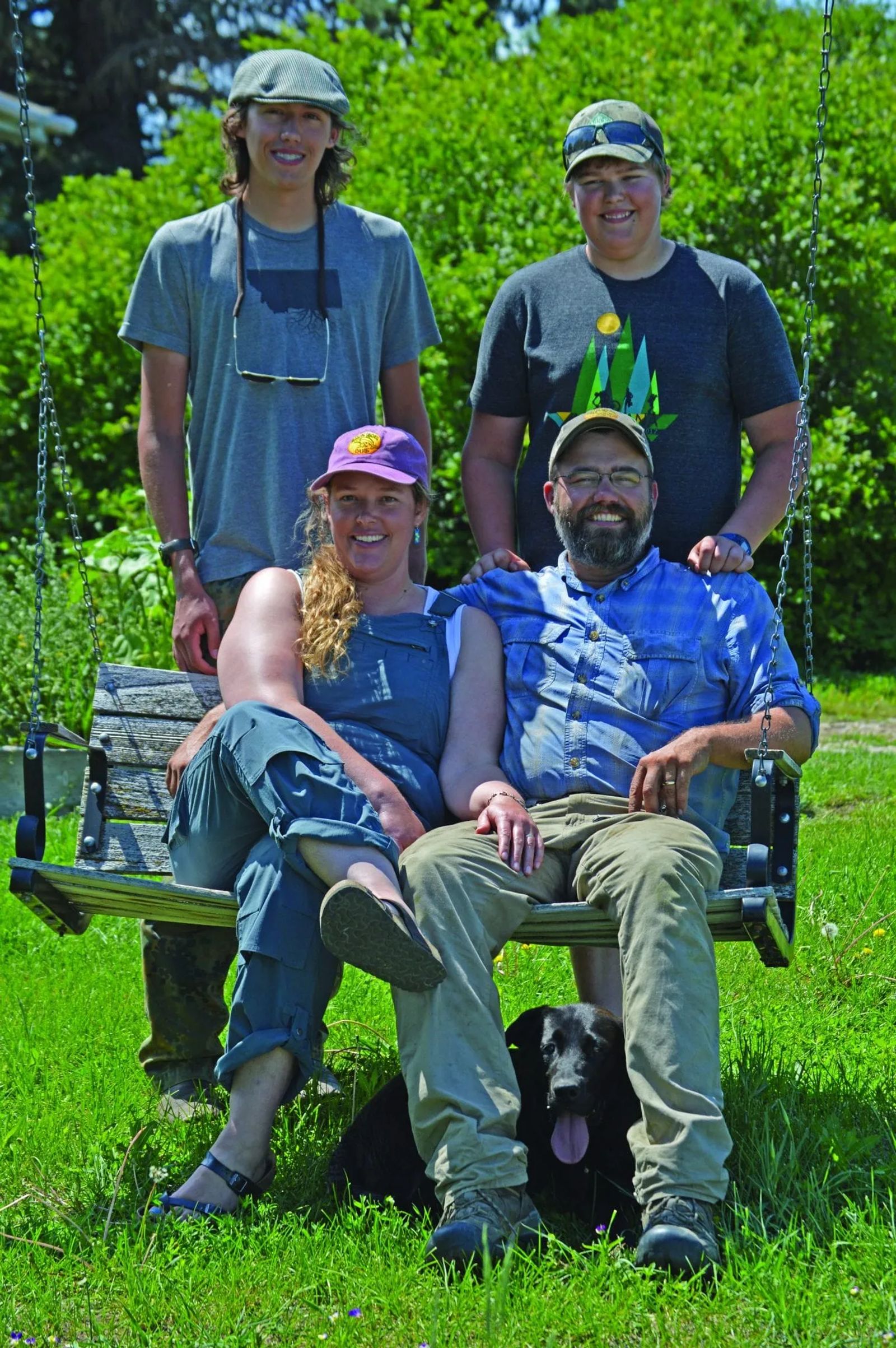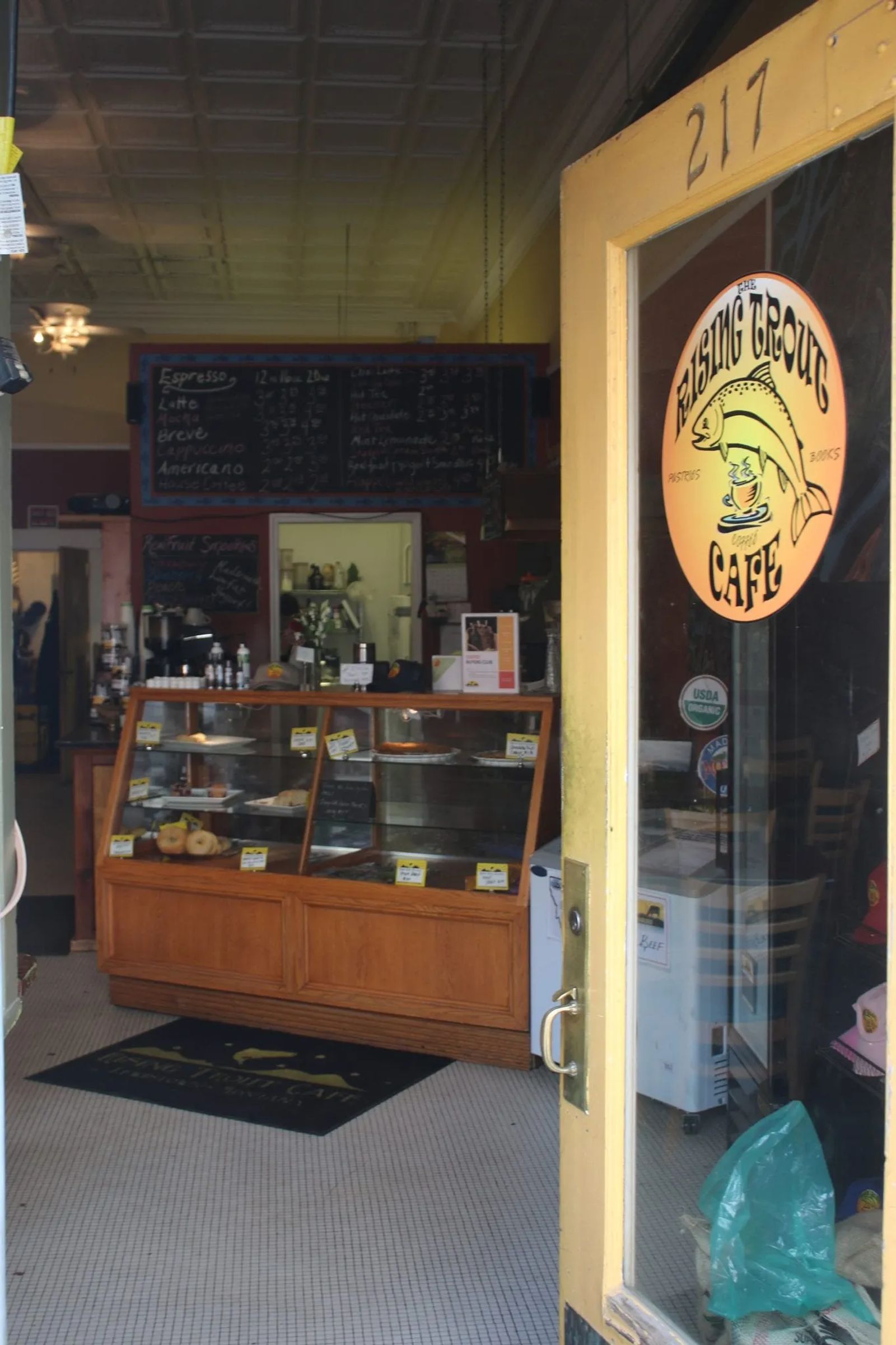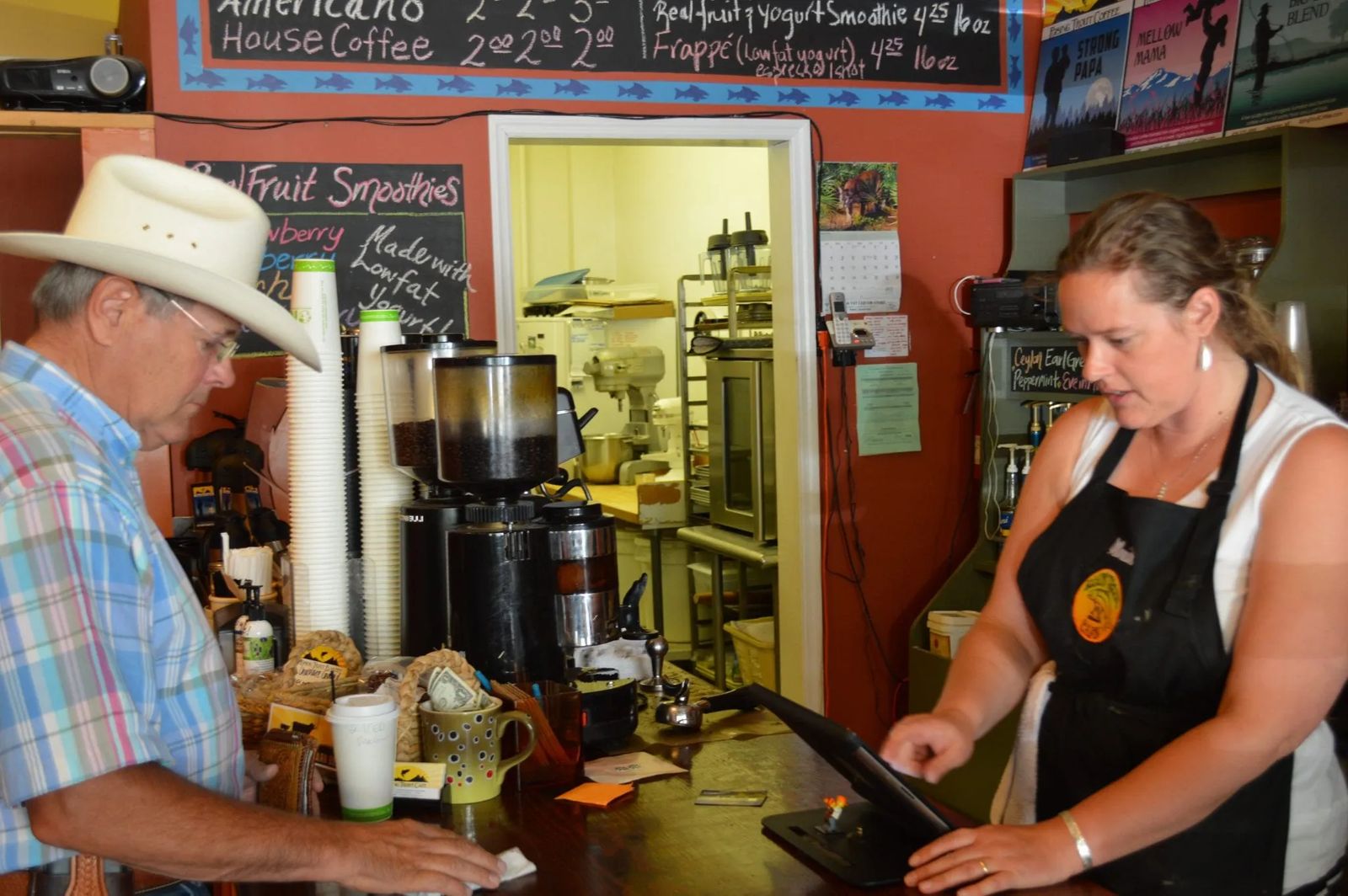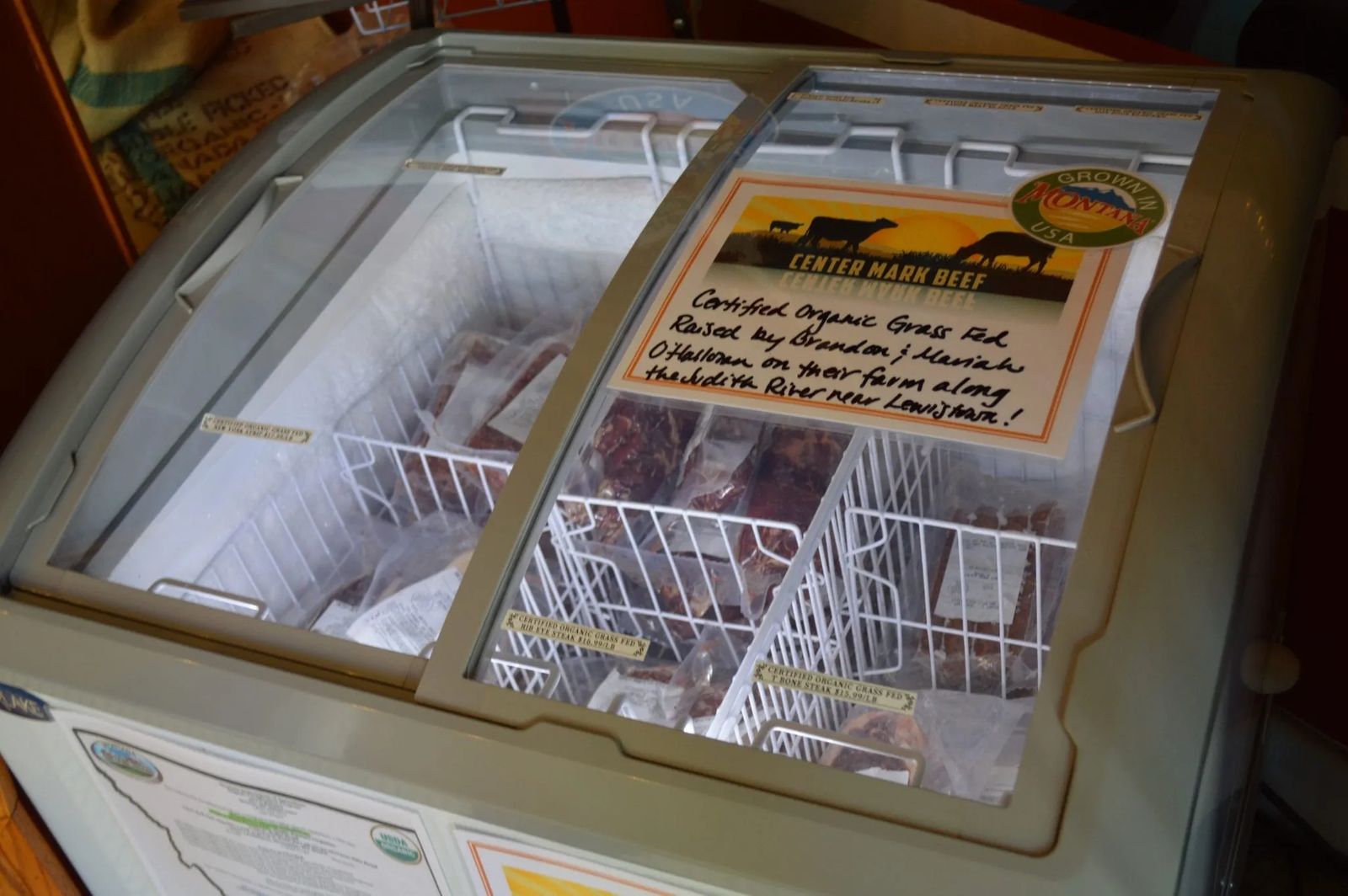
Farm to Family
Central Montana couple find solace in organic farming
Nine years ago, heading home from Farm and Ag Day at the Fergus County Fairgrounds, 7-year-old Luke O’Halloran had a question for his parents, Brandon and Mariah.
“If you can’t get the chemicals on your hands, why do we put them on our food?”
Brandon and Mariah, born and raised ranching and farming in Montana, were impressed and startled by the honest question.
“We didn’t even have an answer for him,” Mariah says, “but, on that drive home, we realized that sums up our philosophy as organic farmers.”
Fast forward to 2018, and Brandon and Mariah are taking the organic farming approach to heart, both with their crops and their cattle, providing them with a good quality of life. This is especially the case when it comes to the cattle.
“These cattle lived 20 miles outside of town, right on the Judith River,” Mariah says. “They had nice lives in a nice place, and we care for them. That makes a difference. The stress animals are under when they are transported or are in a feedlot produces hormones, and you can taste it. That changes the flavor. You can taste the difference.”

This is a far cry from ranching in the Shields Valley, where Brandon grew up, on the west side of the Crazy Mountains. Back then cattle didn’t like him much, and the feeling was mutual.
“I hated ranching,” Brandon says. “To me, it was all work. I swore up and down that I’d never get cattle. It just tied us down too much.”
The fact that he and Mariah have cattle now is still a little surprising to him, but — this time around — he doesn’t mind the cattle, and the cattle don’t mind him.
“I didn’t realize it until I did extensive research on raising cattle, but my attitude had a lot to do with how we were managing our animals then,” Brandon says. “Whenever we were around them, we were doing something kind of bad. Every time we showed up was a negative experience for them, whether it was branding or weaning their calves.”
Brandon responded to the cattle’s negative energy, and vice versa.
“There was always something with the cows,” he says. “They were jumping fences, tearing stuff down and getting into something they shouldn’t.”
Now, Brandon makes sure the cattle have positive interactions with the family as much as possible.
“We want them to think that, when we come around, something good is going to happen,” he says. “They’re going to get water, some alfalfa pellets and hay. We interact with them and have an actually enjoyable experience.”
The O’Hallorans also rotationally graze their animals.
“Our boys move them every single day. Sometimes twice a day,” Brandon says.
Brandon and Mariah believe their customers — who purchase the organic grass-fed beef at the Rising Trout Cafe — can taste the difference.
“We all want to feel a connection to our food,” Brandon says. “I think it’s more satisfying to eat a product when you know how it was treated. It’s a more fulfilling experience when you’re connected to what you eat.” Mariah adds, "I can tell you honestly we’ve never had beef like this. We’ve never had a steak you can cut with a fork. It’s so tender, soft and delicious.”

Farm-to-Cafe
In May of 2013, Brandon and Mariah purchased The Rising Trout, a coffeehouse on the 200 block of Lewistown’s historic Main Street. When they took over as owners, Brandon and Mariah sold fair trade organic coffee, tea and some baked goods, but it was always their intention for the business to become a distribution center for what they raise at home.
“It’s a slow process,” Brandon says, “but that’s intentional. The best course is a slow process.”
Transitioning into the food and beverage industry was a big change for Brandon and Mariah — especially Mariah.

“In the beginning, I was working a lot of those days by myself,” she says. “It took about three or four months to really get into the groove and change up some recipes to organic ingredients.”
Fortunately, Brandon and Mariah both enjoy working with the public, so customer service is often part of the job they thrive on. A former music teacher, Brandon has fun with the performance aspect involved with being behind the counter.
“I hope people enjoy my bad humor and terrible puns,” he says.
Five years in, Brandon and Mariah continue to work hard at the Trout, often working there five days a week.
“There is a real level of commitment involved with running your own business,” Mariah says. “It’s intense, but it’s also really satisfying to take your ideas, come up with techniques and watch it catch on. Most days at the Trout — if you get there after 10 a.m. — we’re sold out of our organic products.”

No place like home
Brandon and Mariah’s vision goes beyond the cafe. They’re pleased to have it, but, for them, the big picture is about working together out in the field. That’s where they feel most at home.
“It sounds silly, but the ground speaks to me in a way,” Brandon says. “Forgive the pun, but it grounds me. I feel connected.”
Brandon and Mariah also want to provide their children with a similar upbringing.
“We really want to have this kind of environment for our kids,” Brandon says. “Honestly, I wouldn’t be sure how to navigate their teenage years without them having something similar to what I had. I had a lot of responsibilities on the farm and I want them to have responsibilities as well.”
Farming is also humbling, Brandon adds.
“You can do all your work exactly right and by the book, then — at a moment’s notice — all of your work can be gone,” he says. “You don’t get to hit the restart button. You have to continue with the hand you’re dealt and find a way to make it through when things don’t go well, and, if things go well, that’s great.”
A vision coming to life
Fortunately for Brandon, Mariah and their boys, farming and ranching is going well, and much of this is thanks to holding firm to a long-term vision while living day to day.
“What we don’t get done today still ultimately has to get done tomorrow,” Brandon says, “and if we don’t do it today there might not be a chance tomorrow to actually do it. This gives us an appreciation for seizing the moment and living in the moment. When I was a kid, I viewed this as negative, but now I embrace it.”
It wasn’t a quick process, but Brandon and Mariah — following Luke’s philosophy — are producing and selling a variety of certified organic merchandise. They have a wide variety of beef products, eggs, lentils (through Timeless Seeds), flour and more.
As more people come in and take the O’Hallorans up on organic options, it amazes the couple. This is what they wanted all along, and they are finally seeing the results.
“I don’t have anything against chemical farmers. People do what they think is best, but, for me, personally, I just think applying chemicals is a Band-Aid solution to a long-term problem,” Mariah says. “I feel like ‘Band-Aid solutions’ is not the kind of legacy I want to leave for my kids. That’s not to say organic farming has all the answers. No farming has all the answers. But I think if we try as much as we can to look long-term, I think we can see past a lot of the short-term problems in front of us. We need to come up with our own plans, our own solutions. We need to look at our own grounds, ascertain what’s going on to the best of our ability and move forward from there in a way that will leave our children with something that’s not more damaged than when we started taking care of it.”













